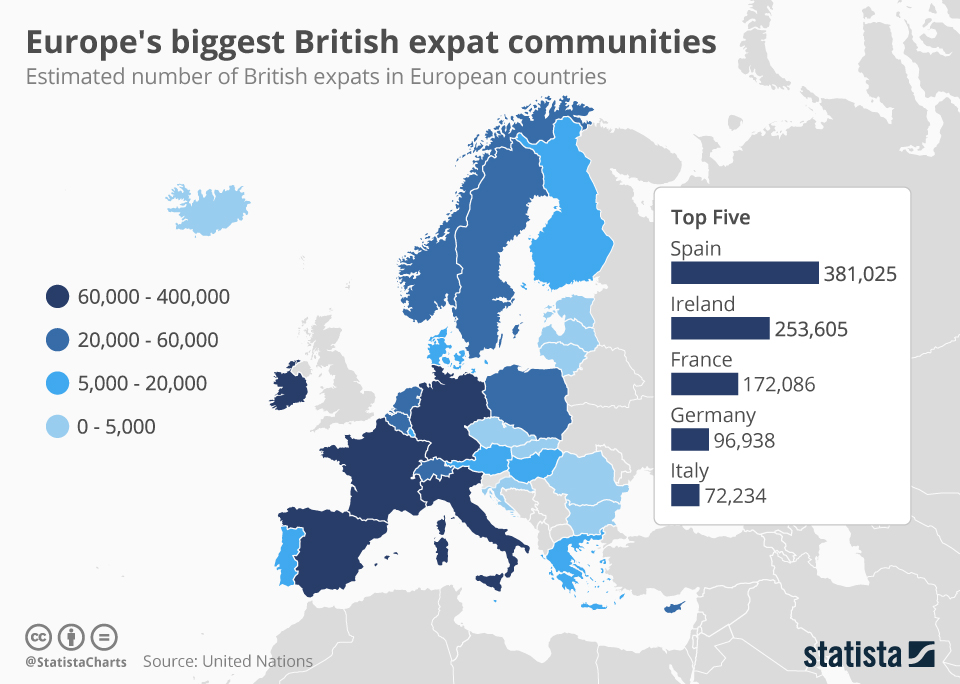
Are you considering a move abroad as an expat? Understanding the ins and outs of managing your finances in a new country is crucial.
From navigating banking options to sending money back home, this article covers 11 essential aspects to help you make informed decisions.
We will delve into topics such as cost of living, tax regulations, retirement planning, property purchase, budgeting tips, insurance policies, and more.
Stay tuned for valuable insights into expat finances and secure your financial freedom.
Cost of Living
The expat's cost of living can vary greatly depending on their chosen destination. One of the major factors that contribute to the cost of living is the cost of education. Expats with children need to consider the expenses associated with international schools or local private schools, which can be quite high in some countries.
Additionally, job opportunities in the chosen destination can also impact the cost of living. Expats with high-paying job opportunities will have more financial flexibility compared to those with limited job prospects. It is important for expats to carefully research and consider these factors before making a decision to relocate.
Banking Options
Expats should carefully consider their banking options to effectively manage their finances and ensure seamless transactions while living abroad.

Digital banking has become an increasingly popular choice for expats due to its convenience and accessibility. With digital banking, expats can easily access their accounts, make international transactions, and track their finances in real-time, all from the comfort of their own homes.
This eliminates the need for physical visits to brick-and-mortar banks and allows for greater flexibility and freedom in managing finances. Additionally, digital banking often offers competitive exchange rates and lower transaction fees compared to traditional banking methods.
Expats should research and compare different digital banking options to find the one that best suits their needs and provides the necessary services for international transactions.
Tax Regulations
When living abroad, it is crucial for individuals to understand and comply with tax regulations in order to effectively manage their finances and avoid any legal issues.
Here are some key aspects to consider regarding tax regulations for expats:
Tax Planning: Expats should engage in tax planning to ensure they are aware of the tax implications of living in a foreign country. This includes understanding the tax laws and regulations of both their home country and their host country.
Tax Deductions: Expats should familiarize themselves with the tax deductions they may be eligible for, both in their home country and their host country. This can help minimize their tax liability and maximize their savings.

Seek Professional Advice: Given the complexities of international tax laws, it is advisable for expats to seek professional advice from tax experts who specialize in expat tax services. They can provide guidance on tax planning strategies, help navigate the tax filing process, and ensure compliance with all relevant regulations.
Understanding tax regulations and engaging in tax planning can help expats effectively manage their finances and make informed decisions to optimize their tax situation.
Currency Exchange
When it comes to currency exchange for expats, there are three key points to consider.
Firstly, exchange rate fluctuations can have a significant impact on the value of your money when converting between currencies.
Secondly, it's important to be aware of the transfer fees and charges associated with exchanging currencies, as these can vary between providers.
Lastly, understanding the options available for currency exchange, such as banks, online platforms, or foreign exchange brokers, can help you make informed decisions and get the best rates possible.
Exchange Rate Fluctuations
Currency exchange rates can have a significant impact on the financial well-being of individuals living abroad. Understanding exchange rate fluctuations is crucial for expats to make informed financial decisions.

Here are some key points to consider regarding exchange rate fluctuations:
Exchange rate forecast: Keeping an eye on exchange rate forecasts can help expats anticipate potential changes in the value of their home currency against the local currency. This information can assist in planning finances and making timely money transfers.
Impact of exchange rates: Fluctuations in exchange rates can affect the cost of living, investment returns, and the value of remittances sent back home. Changes in exchange rates can either amplify or diminish an individual's purchasing power and financial stability.
Hedging strategies: Expats can employ various hedging strategies, such as forward contracts or currency options, to mitigate the risks associated with exchange rate fluctuations. These tools can help individuals protect their finances and plan for future expenses.
Understanding exchange rate fluctuations and their potential impacts is essential for expats to manage their finances effectively and maintain financial freedom while living abroad.
Transfer Fees and Charges
Expats should be aware of the transfer fees and charges associated with currency exchange, as these fees can significantly impact the amount of money sent back home.
When transferring funds internationally, banks and money transfer services may impose various fees and charges on the transaction. These fees can include a fixed fee per transfer or a percentage of the total amount being sent. It is important for expats to carefully consider these fees and compare them across different banking options and money transfer services to ensure they are getting the best deal.

Additionally, expats should be cautious of hidden fees that may not be clearly stated upfront. Some banks or services may also have transfer limits, which means that they impose a maximum amount that can be sent in a single transaction. Expats should be mindful of these limits to avoid any potential issues or delays in sending money back home.
Retirement Planning
When it comes to retirement planning as an expat, there are a few important aspects to consider.
Firstly, understanding the various retirement savings options available in your host country is crucial, as they may differ from what you are accustomed to in your home country.
Additionally, it is essential to be aware of the tax implications for retirees, as these can greatly impact your financial situation during retirement.
Lastly, healthcare coverage after retirement is another important consideration, as access to affordable and comprehensive healthcare can greatly affect your peace of mind and overall quality of life in your golden years.
Retirement Savings Options
Planning for retirement is an essential aspect of expat finances, requiring careful consideration of various savings options. As an expat, it is important to explore retirement savings options that can provide a reliable source of retirement income. Here are three retirement planning strategies to consider:
Employer-sponsored retirement plans: If your employer offers a retirement plan such as a 401(k) or a pension scheme, take advantage of it. These plans often come with employer contributions, making them an attractive option for building retirement savings.

Individual Retirement Accounts (IRAs): IRAs offer tax advantages and flexibility. You can choose between a traditional IRA, where contributions may be tax-deductible, or a Roth IRA, where withdrawals in retirement are tax-free.
International retirement plans: Some countries offer retirement plans specifically designed for expats. These plans provide a way to save for retirement while taking into account the unique circumstances of living abroad.
Tax Implications for Retirees
As retirees consider their retirement planning options, understanding the tax implications is crucial for expat finances. When it comes to tax implications for expats, there are several key factors to consider.
One of the first things to understand is how your retirement savings strategies may be taxed in your host country. Different countries have different tax laws and regulations, so it is important to consult with a tax professional who specializes in expat tax planning.
Additionally, you should also be aware of any tax treaties between your home country and your host country, as this can affect how your retirement income is taxed.
Healthcare Coverage After Retirement
Retirees must carefully consider their healthcare coverage options after retirement to ensure adequate and comprehensive medical support. As they plan for their golden years, it is crucial to understand the various healthcare options available and how they can maximize their retirement benefits.
Here are three key considerations for retirees when it comes to healthcare coverage:

Medicare: Retirees in the United States can access healthcare through the Medicare program, which provides coverage for hospital stays, doctor visits, prescription drugs, and more. It is important to understand the different parts of Medicare, such as Part A (hospital insurance), Part B (medical insurance), and Part D (prescription drug coverage).
Employer-sponsored plans: Some retirees may have the option to continue their employer-sponsored healthcare coverage through retirement benefits. This can provide a seamless transition and ensure continuity of care.
Private health insurance: Retirees can also explore private health insurance options, such as individual plans or supplemental insurance policies to complement Medicare coverage. These plans can offer additional benefits and flexibility to meet specific healthcare needs.
Investment Opportunities
Expats have access to various investment opportunities to grow their wealth and secure their financial future. One popular option is property purchase, which allows individuals to invest in real estate and potentially earn rental income or benefit from property appreciation. Investing in property can offer long-term financial stability and act as a hedge against inflation.
Additionally, expats can explore other investment avenues such as stocks, bonds, mutual funds, and retirement accounts. These investment options provide the potential for capital appreciation and income generation.
It is important for expats to carefully research and evaluate investment opportunities, considering factors such as risk tolerance, investment horizon, and market conditions. Seeking professional advice from financial advisors or wealth management experts can also help expats make informed investment decisions and maximize their returns.
Financial Advice
To navigate the complex world of financial management, individuals living abroad can greatly benefit from seeking professional advice on managing their expat finances. Financial planning and investment strategies play a crucial role in ensuring long-term financial stability and growth.

Here are three key reasons why expats should consider seeking financial advice:
Expertise: Professionals in the field of expat finances possess specialized knowledge and experience in handling the unique challenges faced by those living abroad. They can provide tailored advice on tax optimization, retirement planning, and investment opportunities specific to the country of residence.
Risk Management: Financial advisors can help expats assess their risk tolerance and develop strategies to mitigate potential financial risks. They can provide guidance on diversifying investments, managing currency fluctuations, and protecting assets through insurance and estate planning.
Maximizing Returns: With their expertise, financial advisors can help expats identify investment opportunities that align with their financial goals and optimize returns. They can provide insights on market trends, asset allocation, and investment diversification to help expats make informed decisions.
Seeking professional financial advice can empower expats to make informed decisions, secure their financial future, and make the most of their international experience.
Property Purchase
When considering a property purchase as an expat, it is important to be aware of any legal restrictions in the country you are residing in. Understanding the investment potential and associated risks of the property market is crucial for making informed decisions.
Additionally, exploring the financing options available to expats can help ensure a smooth and successful property purchase process.

Legal Restrictions on Property
Legal restrictions on property purchases can significantly impact expatriates. It is crucial for individuals considering property investment abroad to understand the legal framework of the country they are moving to.
Here are three key points to consider regarding legal restrictions on property:
Ownership restrictions: Some countries impose limitations on foreign ownership of property, such as only allowing leasehold or requiring a local partner. Understanding these restrictions is essential to avoid legal issues and protect investments.
Investment potential: Despite restrictions, certain countries offer attractive investment potential for expatriates. Researching the real estate market, economic stability, and growth prospects can help identify countries that offer favorable opportunities.
Risks and safeguards: Expatriates should be aware of potential risks associated with property purchases, such as fraudulent transactions or unstable property markets. Engaging reputable legal advisors and conducting thorough due diligence can mitigate these risks and protect investments.
Understanding legal restrictions on property is vital for expatriates seeking to invest in real estate abroad. By considering investment potential and risks, individuals can make informed decisions and safeguard their financial interests.
Investment Potential and Risks
Investment potential and risks associated with property purchases are important considerations for expatriates looking to invest in real estate abroad. When it comes to investment risks, expats must carefully assess the local real estate market, economic stability, and legal framework before making any property purchase.

It is crucial to conduct thorough research and seek professional advice to mitigate potential risks and ensure a successful investment. Additionally, expatriates must consider their long-term goals, such as retirement planning, when investing in property abroad. Property can be a valuable asset for generating passive income or serving as a retirement home.
However, it is essential to understand the local regulations, tax implications, and property management responsibilities before making any investment decisions. By carefully evaluating the investment potential and risks, expatriates can make informed decisions and maximize their returns in the real estate market.
Financing Options Available
Expatriates have access to various financing options for property purchase. When considering financing options for property purchase as an expatriate, it is important to understand the available choices. Here are three financing options worth considering:
Local Mortgage: Expatriates can explore the possibility of obtaining a mortgage from local banks or financial institutions in the country they reside in. This option allows them to take advantage of local interest rates and repayment terms.
International Mortgage: Some banks offer international mortgage solutions specifically designed for expatriates. These mortgages allow expatriates to purchase property in their home country or other international locations, providing greater flexibility and convenience.
Cash Purchase: Expatriates who have sufficient funds available can consider a cash purchase. This eliminates the need for financing and allows for greater cost management and investment strategies.
Budgeting Tips
A key aspect of managing finances as an expatriate is implementing effective budgeting strategies. Living in a new country can come with its own set of financial challenges, but with the right approach, it is possible to navigate these obstacles and achieve financial freedom.

One of the first steps is to create a budget that takes into account your income, expenses, and savings goals. This will help you understand where your money is going and enable you to make informed decisions about your spending.
Additionally, it is important to explore money-saving techniques such as finding affordable housing options, cooking meals at home, and minimizing unnecessary expenses. By being mindful of your spending and making smart financial choices, you can ensure a secure and prosperous future as an expatriate.
Insurance Policies
When considering expat finances, it is crucial to understand the importance of insurance policies. Expatriates, living in a foreign country, may face various risks and uncertainties that can have significant financial implications.
Here are some key points to understand about insurance policies for expats:
Health Insurance: It is essential to have comprehensive health insurance coverage to protect against unexpected medical expenses while living abroad. Research and compare different insurance plans to find the one that suits your needs and provides adequate coverage for you and your family.
Property Insurance: If you own property in your home country or have invested in real estate abroad, it is important to ensure that your property is adequately insured against risks such as natural disasters, theft, or damage.
Life Insurance: Having life insurance is crucial, especially if you have dependents or financial obligations. It provides financial security and peace of mind in the event of your untimely demise.

Sending Money Home
To ensure the secure transfer of funds, expats should consider using their preferred banking institution's international money transfer services. International remittance, also known as sending money home, is a crucial aspect of managing finances while living abroad.
Expats often need to send money to their home country for various reasons, such as supporting family members or paying bills and loans. By using remittance services offered by their banking institution, expats can benefit from competitive exchange rates, low fees, and fast transfer times.
These services provide a convenient and reliable way to send money across borders, ensuring that funds reach their intended recipients promptly and securely. Expats should explore the different remittance options available through their bank and choose the one that best suits their needs in terms of cost, convenience, and reliability.
Frequently Asked Questions
How Can Expats Manage Their Finances Effectively While Living Abroad?
To effectively manage finances while living abroad, expats can employ strategies for budgeting and follow tips for managing investments. This allows for a comprehensive approach to financial management, ensuring stability and security in an unfamiliar environment.
What Are Some Common Challenges Expats Face When It Comes to Banking Options in a Foreign Country?
Challenges expats face when it comes to banking options in a foreign country include limited access to local financial services, high fees for international transactions, and language barriers. However, there are solutions such as using online banking platforms and seeking assistance from expat-focused financial institutions.
Are There Any Specific Tax Regulations That Expats Need to Be Aware of When Living Abroad?
Expats living abroad must be aware of tax implications and filing requirements specific to their situation. Understanding these regulations is essential to ensure compliance and avoid any potential legal or financial consequences.
How Can Expats Navigate Currency Exchange Rates and Minimize Transaction Fees?
Expats can navigate currency exchange rates and minimize transaction fees by employing currency exchange strategies and following tips for reducing fees. These strategies can help them make the most of their money while living abroad.

What Are Some Key Factors to Consider When Planning for Retirement as an Expat?
Retirement planning as an expat requires careful consideration of investment options. Factors such as tax implications, healthcare costs, and currency fluctuations should be taken into account to ensure a secure and financially independent future.
 Liveaboard LifestyleTravel DestinationsExPat Places to LiveRV LifeDigital Nomad TravelPrivacy PolicyTerms And Conditions
Liveaboard LifestyleTravel DestinationsExPat Places to LiveRV LifeDigital Nomad TravelPrivacy PolicyTerms And Conditions
